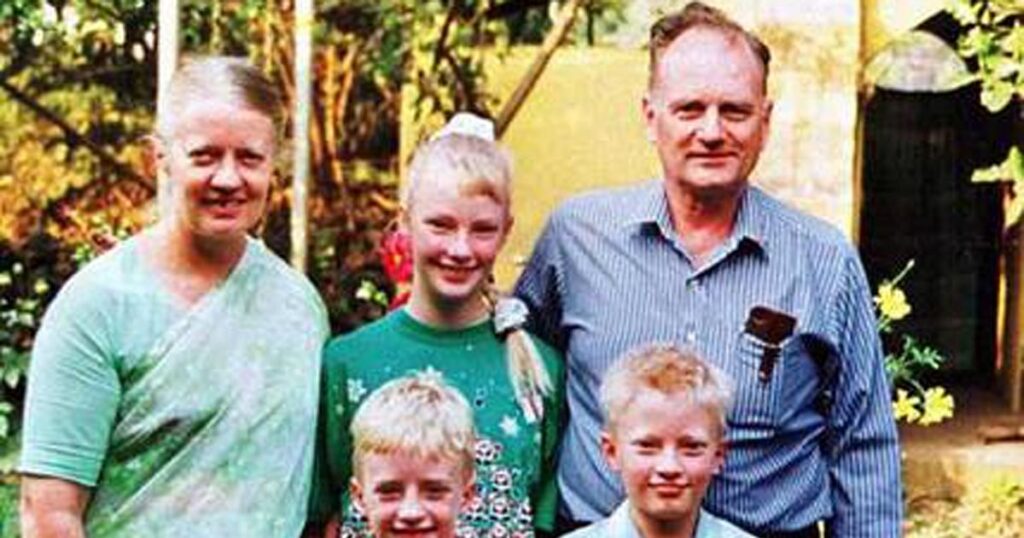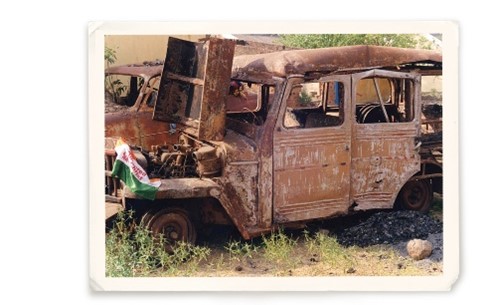Raised in Queensland, Australia, Graham Staines took his medical skills to a leprosy hospital in Odisha state (formerly called Orissa), India. Along with his medical work, Graham participated in evangelistic outreaches in the predominantly Hindu area where he and his wife, Gladys, lived with their three children.
In January 1999, Graham was conducting a five-day, open- air evangelistic outreach. His sons, Timothy, 9, and Philip,7, were with him. One night after Graham and the boys had retired for the night in their station wagon, a group of militant Hindus attacked them, setting fire to the vehicle. Trapped inside the car by the mob, the missionary died holding his boys. Potential rescuers were threatened and warned by the mob to stay away.
The president of India denounced the “barbarous killing” of Graham and his sons. Lepers at the hospital operated by his Evangelical Missionary Society buried the three victims two days after the killings. Gladys and their daughter, Esther, consoled the mourners with their complete trust in God, singing this hymn with them:




